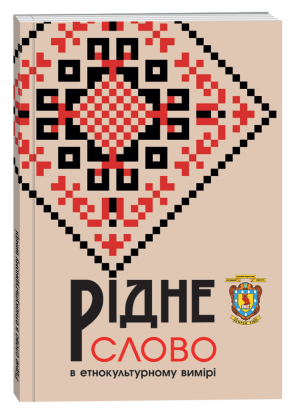LINGOCULTURAL CONCEPTS «WEALTH-POVERTY» IN SLAVIC PAREMIOLOGY
DOI:
https://doi.org/10.24919/2411-4758.2018.140229Keywords:
concept; linguistic culture; binary concept; parеmia; phraseology; wealth-poverty; money.Abstract
The article investigates the comparative analysis of the concepts «wealth-poverty » in the Slavic languages’ (Ukrainian, Russian and Polish) proverbs; it has been clarifi ed that the concept is the modern term of many humanities: linguistics, literary studies, psychology, philosophy. Actually the concept is one of the basic components of any culture and the pivotal term of the conceptual apparatus of cultural linguistics. In linguistic, we can outline several approaches to understanding the concept: logical, linguistic, linguocognitive, linguocultural. The author notes that the concept is the most important unit of linguist ic and cultural modeling of the national mentality. It has been clarifi ed that the modern linguistics studies the important philosophical units in interaction with their oppositional categories, therefore, linguists use the term «binary concept», which consists of lexem-antonyms: life-death, good-evil, wealth-poverty. The author’s aim is to carry out a comparative analysis of the linguistic and cultural concepts «wealth-poverty» in Slavic phraseology and to consider the way of their implementation precisely at the parеmiologic level of the Ukrainian, Russian and Polish languages. Paramiology is an important component of the conceptual sphere, and most clearly refl ects the peculiarity of the people’s life, its culture, traditions and mentality, and therefore the object of research in linguoculture is not accidental, because these special verbal signs are endowed with «cultural memory ». It has been clarifi ed that the concept of «wealth-poverty» is closely linked to the presence / absence of money; it has been established that the same concept is differently perceived in different linguistic cultures/ Slavs usually condemn wealth, for them it (wealth) is not an indicator of success, so most paremias have a negative connotation. Rich people are often depicted shameless and dishonest towards the poor. Slavic culture is permeated with the pathos of spirituality, therefore the material wealth and spiritual wealth are clearly distinguished. Russian culture emphasizes the «value of poverty» and considers poverty with humor. In general, the assessment of the poor, represented in the analyzed linguistic units, varies from the positive in the collective consciousness of the Eastern Slavs. The article more clearly outlined the place of the linguistic and cultural concepts «wealth-poverty» in Slavic paremiology and indicates the deep rooting of them in the ethno-culture of the Ukrainian, Russian and Polish peoples. The prospects of our research lie in the comparative study of the Slavic and Germanic phrases on the notion of wealth-poverty, in order to provide a comprehensive representation of the Slavs and Germans about these concepts.
References
Вільчинська Т. (2008). Концептуалізація сакрального в українській поетичній мові ХVII – XVIII ст. Тернопіль: Джура.
Головащенко С. (1999). Історія християнства. Київ: Либідь.
Даль В. (1984). Пословицы русского народа. Москва: Художественная литература.
Карасик В. (2001). Лингвокультурный концепт как единица исследования. Методологические проблемы когнитивной лингвистики. Сборник научных трудов. Воронеж: ВГУ. 75 – 80.
Коцюба З. (2010). Універсальне і національне в паремійних фондах мов європейського ареалу (лінгвокультурологічний аспект) (Автореферат дис. докт. філол. наук / Київський національний університет ім. Т. Шевченка, Інститут філології, Київ.
Krzyżanowskа J. (Red) (1969 – 1972). Nowa księga przysłów i wyrażeń przysłowiowych polskich: w IV t. Warszawa: Państwowy Instytut Wydawniczy, T. I – III.
Кубряковa Е. (Ред.). (1996). Краткий словарь когнитивных терминов. Москва: Филол. ф-т МГУ им. М. В. Ломоносова.
Лихачев Д. (1997). Концептофера русского языка. Русская словесность: От теории словесности к структуре текста. Москва: Academia, 280– 287.
Малиновська Г. (2010). Концепт «гроші» в українськiй мовнiй картинi свiту. Українська мова, 4, 75–84.
Номис М. (1993). Українські приказки, прислів’я і таке інше. Торонто – Київ: Бескид, 226.
Петров О. (2017). Об’єктивація лінгвокультурних концептів щедрість – скупість у германських і слов’янських мовах : зіставний аспект (Дис. канд. філол. наук). Вінниця.
Приходько А. (2008). Концепти і концептосистеми в когнітивно-дискурсивній парадигмі лінгвістики. Запоріжжя: Прем’єр.
Реферовская Е. (1985). «Спор» реалистов и номиналистов. Ленинград: Издательство «Наука» Ленинградское отделение.
Телия В. (1996). Русская фразеология : семантический, прагматический и лингвокультурологический аспекты. Москва: Школа «Языки русской культуры».
Фрумкина Р. (1992). Концепт, категория, прототип. Лингвистическая и экстралингвистическая семантика. Москва: Наука.

